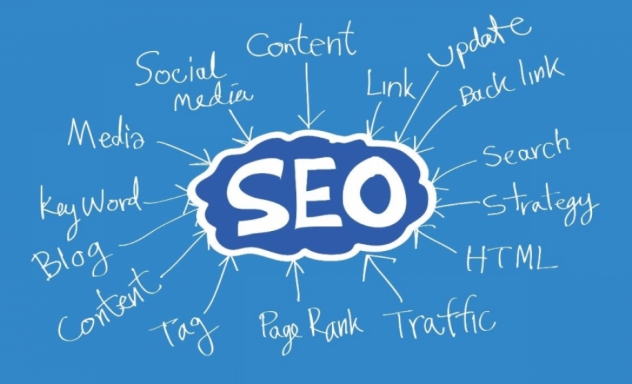To rank better on Google, avoid common SEO mistakes by focusing on user intent, optimizing on-page elements, building quality backlinks, and fixing technical issues. 1) Match content to user intent by analyzing top-ranking pages. 2) Optimize title tags, meta descriptions, headers, and internal links for clarity and readability. 3) Focus on earning relevant, high-quality backlinks rather than acquiring many low-quality ones. 4) Address technical SEO issues like slow loading times, broken links, and mobile usability through tools like Google Search Console and PageSpeed Insights. Fixing these key areas improves your site’s visibility and ensures long-term SEO success.

When you're trying to rank better on Google, it’s easy to make mistakes that can hurt your progress — sometimes without even realizing it. The biggest issues usually come down to not understanding how search engines really work, or focusing too much on outdated tactics. If you want real results from your SEO efforts, avoiding these common blunders is a solid starting point.

Not Focusing Enough on User Intent
One of the most overlooked aspects of SEO is user intent. It's not enough to just target keywords; you need to understand what users are actually looking for when they type those queries.

- Pages that don’t match the intent behind a keyword tend to bounce users quickly, which signals to Google that your content isn’t helpful.
- For example, if someone searches for “how to tie a tie,” they probably want a step-by-step guide or video, not a history of neckwear.
- To fix this, look at the top-ranking pages for your target keyword and see what format and content style they use. That gives you a good clue about what Google thinks satisfies the user’s intent.
This isn’t just about guessing right — it’s about aligning with what’s already working in the search results.
Ignoring On-Page SEO Basics
It’s surprising how many websites skip over basic on-page SEO elements like title tags, meta descriptions, header structure, and internal linking. These might seem minor, but they help both users and Google understand your page better.

- Title tags should clearly describe the page content and include the main keyword near the beginning.
- Meta descriptions don’t directly impact rankings, but they influence click-through rates, which matters indirectly.
- Use headers (H1, H2, etc.) to organize your content logically — not just for SEO, but for readability too.
- Internal linking helps spread link equity across your site and guides users to related content.
Many people focus only on backlinks or content length and forget that clean, optimized pages are easier for Google to index and rank properly.
Building Low-Quality Backlinks
Backlinks still carry a lot of weight in Google’s ranking algorithm, but not all links are created equal. Some sites end up doing more harm than good by chasing low-quality links from spammy directories, irrelevant sites, or paid link schemes.
- Google has gotten very good at identifying unnatural link patterns. A sudden spike of poor-quality links can trigger a manual or algorithmic penalty.
- Instead of quantity, aim for relevance and authority. A single link from a respected industry blog can be worth more than dozens from unrelated or sketchy sources.
- Focus on creating shareable content, guest posting on reputable sites, or earning mentions through PR efforts.
Link building should be a slow, natural process that reflects real value, not something forced through aggressive outreach or black-hat tactics.
Overlooking Technical SEO Issues
Technical SEO might not be as flashy as content or backlinks, but it's what keeps your site running smoothly in Google’s eyes. Things like slow loading times, broken links, or poor mobile usability can silently tank your rankings.
- Use tools like Google Search Console and PageSpeed Insights to catch crawl errors, indexing problems, or performance bottlenecks.
- Make sure your site is mobile-friendly — Google uses mobile-first indexing, so desktop-only optimization won’t cut it anymore.
- Fix 404 errors regularly and set up proper redirects when pages move.
A technically sound website ensures that Google can easily access and understand your content, which is a big part of staying visible in search.
Basically, avoid chasing shortcuts, stay focused on quality and relevance, and keep your site technically healthy. Those habits go a long way in Google SEO.
The above is the detailed content of What are the biggest mistakes to avoid in Google SEO?. For more information, please follow other related articles on the PHP Chinese website!

Hot AI Tools

Undress AI Tool
Undress images for free

Undresser.AI Undress
AI-powered app for creating realistic nude photos

AI Clothes Remover
Online AI tool for removing clothes from photos.

Clothoff.io
AI clothes remover

Video Face Swap
Swap faces in any video effortlessly with our completely free AI face swap tool!

Hot Article

Hot Tools

Notepad++7.3.1
Easy-to-use and free code editor

SublimeText3 Chinese version
Chinese version, very easy to use

Zend Studio 13.0.1
Powerful PHP integrated development environment

Dreamweaver CS6
Visual web development tools

SublimeText3 Mac version
God-level code editing software (SublimeText3)
 Are we becoming less curious about SEO?
Jul 07, 2025 am 09:12 AM
Are we becoming less curious about SEO?
Jul 07, 2025 am 09:12 AM
I noticed that a strong comment from Google’s VP of Search, Hyung-Jin Kim, at SMX Next in November 2022 has largely gone unnoticed by the SEO community up to now.He stated (my emphasis):“E-A-T is a template for how we rate an individual site. We do i
 What we're seeing a week into the Google March 2024 core and spam updates
Jul 07, 2025 am 09:16 AM
What we're seeing a week into the Google March 2024 core and spam updates
Jul 07, 2025 am 09:16 AM
We are now just about a week into the Google March 2024 core and spam updates, and boy, has it been busy. In that time, we have seen search ranking volatility, some related to the algorithmic updates and some related to Google issuing manual actions
 4 keys to SEO and PPC collaboration in 2024
Jul 06, 2025 am 09:27 AM
4 keys to SEO and PPC collaboration in 2024
Jul 06, 2025 am 09:27 AM
Every year brings a ton of change in digital marketing. In each of my 10 years in the industry, I’ve noticed that the beginning of the year can mark a surge in calls for SEO and PPC to work together.The difference in 2024? There’s an elephant in the
 Reddit shown excessively in Google product review search results, study finds
Jul 15, 2025 am 09:13 AM
Reddit shown excessively in Google product review search results, study finds
Jul 15, 2025 am 09:13 AM
Reddit appears in 97.5% of Google Search queries related to product reviews and holds almost two-thirds of the spots within Google’s Discussions and forums feature on search results pages, according to a new analysis.Why it matters. While Reddit can
 Google updates its page experience docs to clarify ranking signals
Jul 07, 2025 am 09:15 AM
Google updates its page experience docs to clarify ranking signals
Jul 07, 2025 am 09:15 AM
Google updated its page experience help documentation to clarify how Core Web Vitals metrics are used as a ranking signal. Google also made clear that other page experience signals are not directly utilized for ranking purposes in Google Search.What
 Teaching writers when and how to use generative AI to create helpful content
Jul 06, 2025 am 09:26 AM
Teaching writers when and how to use generative AI to create helpful content
Jul 06, 2025 am 09:26 AM
On Nov. 30, 2022, OpenAI launched ChatGPT, a groundbreaking AI chatbot that can understand and generate human-like text. Less than three weeks later, I started teaching writers how to use generative AI tools like ChatGPT to create helpful content.
 SEO for user activation, retention and community
Jul 13, 2025 am 09:19 AM
SEO for user activation, retention and community
Jul 13, 2025 am 09:19 AM
SEO has traditionally been viewed as an acquisition channel, focusing on ranking websites to generate more traffic and leads. However, the role of SEO can extend far beyond just acquisition.This article explores how SEO can strategically influence us
 Why is my SEO not working?
Jul 07, 2025 am 12:18 AM
Why is my SEO not working?
Jul 07, 2025 am 12:18 AM
The main reasons why SEO does not work include unstable content quality, insufficient technical foundation, and lack of external trust signals. First, if the content fails to meet the user's search intention, only stacks keywords without providing actual solutions, the top-ranked article structure should be analyzed, covers the core user problems, and improves readability; second, the slow page loading speed, the mobile side is not adapted, the existence of dead links or duplicate content will affect the inclusion and user experience, and it is recommended to use tools to detect the speed and optimize the structure; finally, the lack of external links and social sharing leads to low trust, and it is necessary to actively cooperate to promote practical content and guide users to forward.






